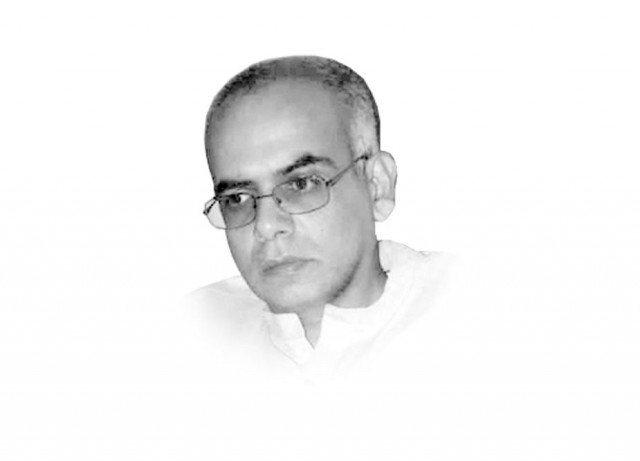Security for whom?
Glaring forms of atrocities afflict the lives of multitudes of people all around

The writer is a development anthropologist. He can be reached at ali@policy.hu
The UNDP Report first mentioned the need for paying attention to human security back in 1994. Pakistani economist Mahbubul Haq played a key role in defining and popularising this notion of security with a human-centric focus, which in turn implies ensuring economic, food, health, environmental, personal, community and political security. However, formulation of an integrated notion like human security does not mean that the principles enshrined within it have automatically been achieved.
Human security has become a buzzword over the past two decades. Yet, many countries continue to pay no more than lip service to this idea, in their continued obsession with militarised notions of security instead. Knee-jerk responses to the scourge of terrorism around the world in the post-9/11 context have also served to bolster conventional security approaches.
Myopic interpretations of security are prevalent in both the so-called ‘developing’ and ‘developed’ world. Consider, for instance, how the Trump administration decided to spike military expenditures and cut back on funding for development.
Pakistan too has placed much more attention on the need for national rather than human security. From a historical perspective, the impact of colonisation and lingering hostilities with a larger neighbouring state explain our obsession with national security. Our ongoing involvement in the proxy wars in Afghanistan have also reinforced the rationale of furthering a national security agenda, instead of giving primacy to the needs and concerns of people who live within the nation.
This obsession has however led to a range of adverse consequences. We have witnessed repeated coups, and authoritarian tendencies, justified by the need to preserve national security. Top-down economic models have led to increasing concentration of wealth and rigid economic stratification. Pakistan’s elite-led political system has relied heavily on electables and patronage-based politics. Our dysfunctional institutions have remained unable to contend with lingering disparities and the growing polarisation within our society. Continued investment in an escalating arms race may have turned us into a nuclear power, but a majority of poor people lack access to rudimentary facilities, such as health, education or even clean drinking water.
The idea of human security does not aim to undermine the need for national security. Instead the two ideas of security are mutually reinforcing concepts. Human security cannot be assured if the security of a state is being undermined in the conventional sense. However, focusing on national security without paying heed to what happens to the people within a state is not justifiable either. The dominant security-centric paradigm is also not effective in contending with the complex challenges facing the world today, or to make it a less violent and threatening place.
Conversely, adhering to the concept of human security can help curb the excesses of security-obsessed states. It can help prevent nation-states from becoming oppressors, rather than guarantors of peace. A human security agenda can amplify the concerns of women, religious and ethnic minorities, who continue to face violence and persecution, while their governments remain preoccupied with external aggressors. Human security concerns can check the tendency of insecure governments muzzling dissenting voices in civil society or the media in the bid to retain a grip on power.
Focusing on human security also offers an effective antidote to the growing use of populist, xenophobic and ultranationalist appeals which have made an unfortunate resurgence around the world today.
Published in The Express Tribune, October 12th, 2018.
Like Opinion & Editorial on Facebook, follow @ETOpEd on Twitter to receive all updates on all our daily pieces.















COMMENTS
Comments are moderated and generally will be posted if they are on-topic and not abusive.
For more information, please see our Comments FAQ